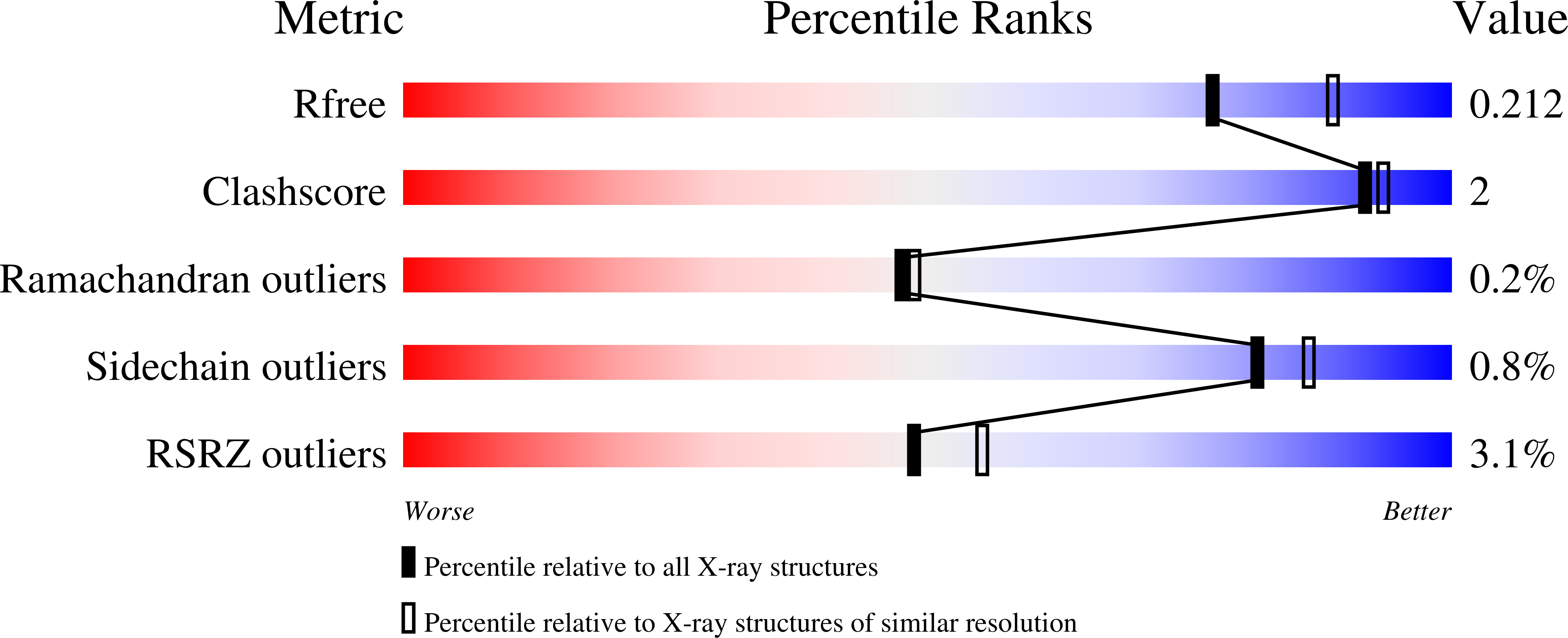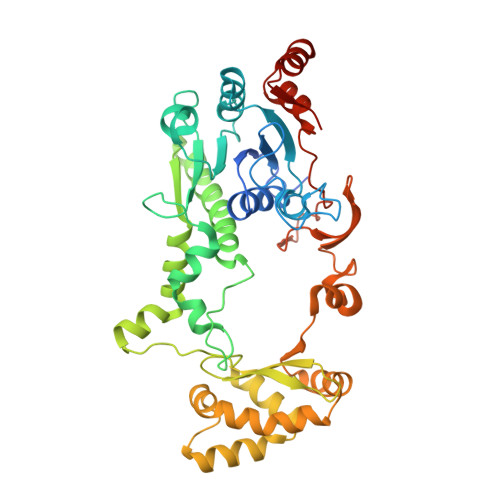Structural Basis for a Cork-Up Mechanism of the Intra-Molecular Mesaconyl-CoA Transferase.
Pfister, P., Zarzycki, J., Erb, T.J.(2023) Biochemistry 62: 75-84
- PubMed: 36535006
- DOI: https://doi.org/10.1021/acs.biochem.2c00532
- Primary Citation of Related Structures:
8APQ, 8APR - PubMed Abstract:
Mesaconyl-CoA transferase (Mct) is one of the key enzymes of the 3-hydroxypropionate (3HP) bi-cycle for autotrophic CO 2 fixation. Mct is a family III/Frc family CoA transferase that catalyzes an unprecedented intra-molecular CoA transfer from the C1-carboxyl group to the C4-carboxyl group of mesaconate at catalytic efficiencies >10 6 M -1 s -1 . Here, we show that the reaction of Mct proceeds without any significant release of free CoA or the transfer to external acceptor acids. Mct catalyzes intra-molecular CoA transfers at catalytic efficiencies that are at least more than 6 orders of magnitude higher compared to inter-molecular CoA transfers, demonstrating that the enzyme exhibits exquisite control over its reaction. To understand the molecular basis of the intra-molecular CoA transfer in Mct, we solved crystal structures of the enzyme from Chloroflexus aurantiacus in its apo form, as well as in complex with mesaconyl-CoA and several covalently enzyme-bound intermediates of CoA and mesaconate at the catalytically active residue Asp165. Based on these structures, we propose a reaction mechanism for Mct that is similar to inter-molecular family III/Frc family CoA transferases. However, in contrast to the latter that undergo opening and closing cycles during the reaction to exchange substrates, the central cavity of Mct remains sealed ("corked-up") by the CoA moiety, strongly favoring the intra-molecular CoA transfer between the C1 and the C4 position of mesaconate.
Organizational Affiliation:
Department of Biochemistry & Synthetic Metabolism, Max Planck Institute for Terrestrial Microbiology, Karl-von-Frisch Stra?e 10, 35043 Marburg, Germany.















